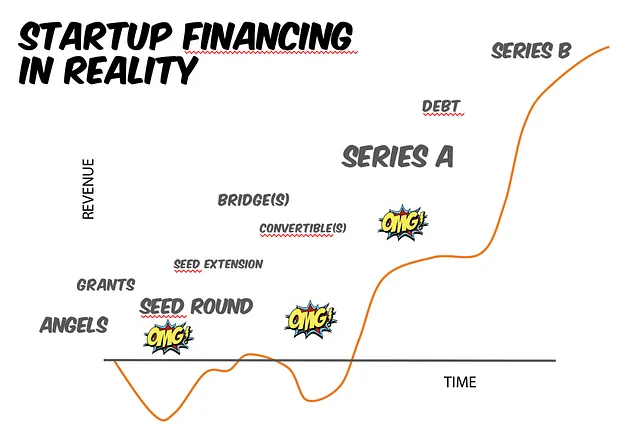Series A Financing
What is Series A Financing?
Definition:
Series A financing, in the context of startup funding, refers to the first significant round of investment that a startup receives from venture capitalists (VCs) after the initial seed funding stage. This funding round is crucial for startups aiming to scale their operations, develop their products, and expand their market presence. Series A financing is typically sought after a startup has demonstrated proof of concept, achieved certain milestones, and is poised for accelerated growth.
Analogy:
Think of Series A financing as the pivotal moment in a novel where the protagonist, after navigating initial challenges, secures substantial resources and support to embark on a more significant and transformative journey. This infusion of capital becomes the turning point for the startup, enabling it to advance to the next chapter of its development.
Further Description:
Series A financing involves the injection of capital into a startup in exchange for equity. Investors participating in Series A rounds are often venture capital firms, though other institutional investors and angel investors may also be involved. The funds acquired during this round are primarily directed towards:
Scaling Operations: Supporting the expansion of the startup’s team, infrastructure, and overall operational capacity to meet growing demand.
Product Development: Enhancing and refining the startup’s product or service based on feedback and market requirements.
Market Expansion: Investing in marketing and sales efforts to broaden the startup’s customer base and establish a stronger market presence.
Talent Acquisition: Attracting and hiring skilled professionals to strengthen the startup’s capabilities and drive innovation.
Strategic Partnerships: Forming alliances or collaborations that can contribute to the startup’s growth and success.
Why is Series A Financing Important?
Fueling Growth: Series A financing provides the necessary financial fuel for startups to move beyond the initial stages and embark on a trajectory of accelerated growth.
Validation and Credibility: Securing funding from reputable venture capitalists serves as a vote of confidence in the startup’s potential, enhancing its credibility in the eyes of future investors, customers, and partners.
Strategic Guidance: In addition to capital, venture capitalists often bring valuable industry expertise and strategic guidance, assisting startups in navigating challenges and making informed decisions.
Market Positioning: Successful Series A funding positions a startup as a more serious player in the market, attracting attention and fostering trust among stakeholders.
Examples and Usage:
Tech Startups: Series A financing is common in the technology sector, where startups may secure funding to scale their software development, expand user acquisition, and strengthen infrastructure.
Biotech Companies: In the biotechnology industry, Series A funding can support further research and development, clinical trials, and regulatory compliance efforts.
Consumer Goods: Startups offering innovative consumer products may use Series A funds to ramp up production, invest in marketing, and enter new markets.
Key Takeaways:
- Series A financing is a pivotal funding round for startups, typically following seed funding.
- It involves significant investment from venture capitalists, providing capital for scaling operations, product development, and market expansion.
- The importance of Series A financing goes beyond capital, as it also brings validation, credibility, strategic guidance, and market positioning.
- Examples of Series A-funded startups can be found across various industries, with a focus on growth and market expansion.
Table of Contents





